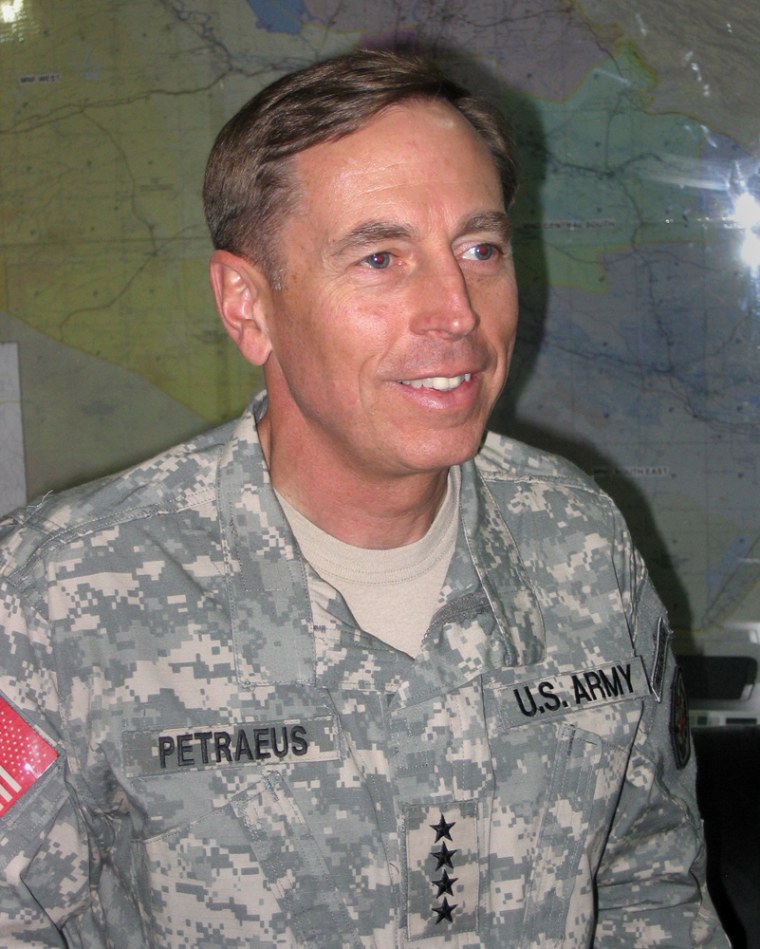The top U.S. general and diplomat in Iraq warned on Thursday against cutting short the American troop buildup and suggested they would urge Congress in September to give President Bush’s strategy more time.
Ambassador Ryan Crocker and Gen. David Petraeus, in separate Associated Press interviews at their offices in the U.S. Embassy on the banks of the Tigris, were careful not to define a timeframe for continuing the counterinsurgency strategy — and the higher U.S. troop levels — that began six months ago.
Still, Petraeus’ comments signaled that he would like to see a substantial U.S. combat force remain on its current course well into 2008 and perhaps beyond. He said that a drawdown from today’s level of 160,000 U.S. troops is coming but he would not say when.
Petraeus said he and his top deputy, Lt. Gen. Ray Odierno, are working on how to carry out a reduction in the extra troops Bush ordered to Baghdad and to Anbar province. He said the drawdown would be done “over time, without undermining what we’ve fought to achieve.”
“There is a lot more that we certainly will try to do,” Petraeus said.
'Its going to take longer'
With the American public’s patience wearing thin, many in Congress are pressing for a troop reduction soon. Bush has resisted, saying he is waiting to receive the advice of Petraeus and Crocker in September.
Pressed repeatedly on when he thought troop levels could be reduced and other U.S. involvement scaled back, Crocker said: “It’s going to take longer than September.”
He said he saw his mission as ensuring “we’re all looking at reality. I don’t think any service is done either in Iraq or the U.S. by saying, again, ‘It’s going to be OK by November.’ This is hard. There is tremendous damage that’s been done physically, politically, socially and it’s going to take time to repair.”
U.S. military officers have said in recent interviews that while troop levels should be determined as conditions evolve, they see little reason to remove the full 30,000 U.S. troop buildup before next summer. Some say they can foresee beginning some reductions by summer or earlier.
Petraeus said he would make his case in September, when he and Crocker are due to report to Congress on military and political progress and on their recommendations for the future.
He said the troop buildup has clearly established “tactical momentum,” meaning its more aggressive efforts to secure volatile neighborhoods in Baghdad and areas around the capital are succeeding. The bigger issue is whether those gains will lead to a stability that can be sustained over time.
“The surge enables us to turn the tide just a bit in key places,” the four-star general said in an hour-long interview.
Patraeus: Iraqi forces need training
Asked what more the U.S. military needs to accomplish to put Iraq on a steadier track, Petraeus ticked of a list that included furthering the training and equipping of Iraqi security forces, which are intended to gradually take over for U.S. forces, beginning in areas where security and political conditions allow.
“We want to make much more progress against al-Qaida. We would like to build on the early momentum from local groups rejecting al-Qaida and militias,” Petraeus said. We want to certainly not just sit on the violence in Baghdad neighborhoods and stabilize it but to create a way ahead that can be sustained by the Iraqis over time. We want to, where possible, frankly, to continue the process of handing off to Iraqis.”
'Movie will keep on rolling'
Crocker spoke more directly of his conviction that the current strategy should be maintained — and about his concern that if the United States were to withdraw now Iraq would be plunged into a humanitarian disaster.
“It is not as though we can simply decide that we do not want to be involved anymore and the movie comes to an end,” he said. “The movie will keep on rolling in Iraq and in the region whether we’re here or not.
“I, for one, as someone who has spent decades in the Middle East, am deeply concerned about what could happen if we decide based on reasons other than conditions on the ground in Iraq that we simply don’t want to be involved anymore.”
He said the consequence could be inroads by the al-Qaida terrorist network, a consolidation of Iranian influence in Iraq, intervention by Turkey and other neighboring states, and a “massive human catastrophe.”
'No ... magic answers'
Sprinkled throughout his remarks were references to a need for patience in seeing Iraq through its current crisis.
“There are no easy, quick, magic answers at this stage,” he said.
Petraeus, who was installed as the top U.S. commander here in February as the troop buildup got under way, underscored his belief that the extra troops have produced the intended benefit of reducing sectarian murders, encouraging more Iraqis to help U.S. forces and squeezing extremist groups.
“Once you get the locals recognizing that you are going to be there a while, they then tell you” where insurgent forces are hiding, where they have placed roadside bombs and where they store weapons, he said.
The problem, at this stage, is that these developments have not led the government of Prime Minister Nouri al-Maliki to push through key legislative measures and to move toward political reconciliation between the majority Shiites, the Kurds and the Sunnis who lost power when Saddam Hussein was toppled.
Petraeus said he believed the Sunnis are beginning to see their future in a different, more positive light.
They have “gotten a little bit past the point where they were the last few years, which was one of feeling disrespected, dispossessed, disappointed, disgusted, distressed, you name it, at their loss of power,” he said.
